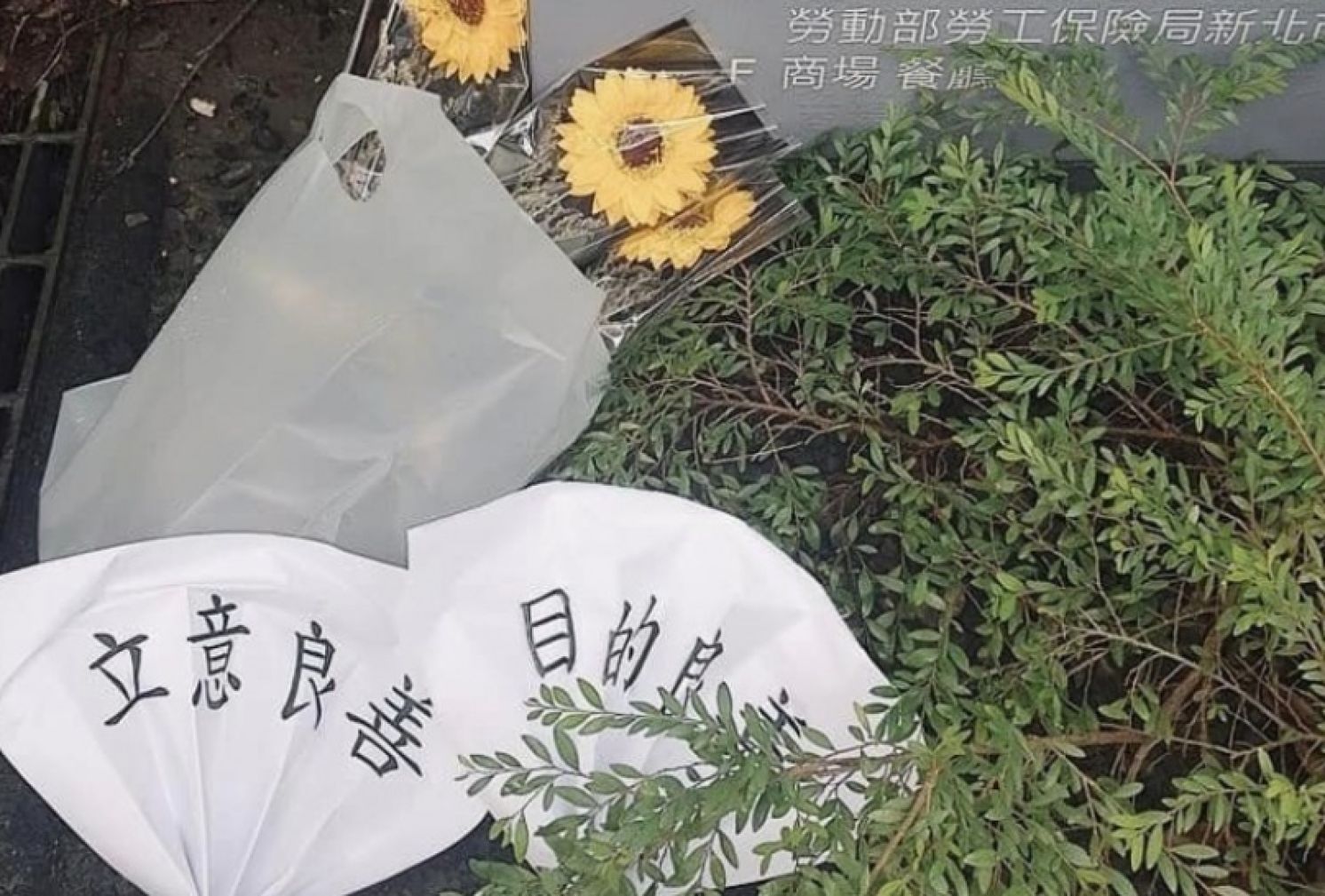
Government Takes Lead with "Spoiled Bosses": Workplace MeToo Movement Anger Spreads
The Storm Media Survey, November 22, 2024
The death of a public servant at the Ministry of Labor (MOL) has shattered the facade of “Happy Taiwan,” exposing deeply ingrained “workplace bullying.” On November 20, a note reading, “I am a public servant; I just want to live well,” was placed at the Ministry’s entrance. Despite apologies from President Lai Ching-te and Premier Cho Jung-tai, as well as the verbal resignation of Minister of Labor Ho Pei-shan, public outrage continued to surge. A "well-intentioned" investigation report from the Ministry of Labor, coupled with a lawyer’s statement from Hsieh Yi-jung, head of the northern Taiwan regional branch of the Workforce Development Agency, MOL, only exacerbated the situation, pouring fuel on an already raging fire.
Workplace bullying has recently become a focal point in news discussions. In August, a tragic case emerged involving a man who had worked as a part-time employee for five years at the Insurance Business Development Center under the Financial Supervisory Commission. Struggling with conflicts between his graduate school schedule and work responsibilities, compounded by his supervisor’s unreasonable demands, the man took his own life on campus. Similarly, in October, reports surfaced about the director of the National Museum of Marine Science and Technology. The director was accused of frequently scolding staff and issuing instructions in an emotionally abusive manner, leading to mental and physical health problems among some employees.
The deeply ingrained “notorious boss” culture has become a vicious structure in both public and private sectors in Taiwan, effectively decaying from the foundation. Senior officials with strong connections use their influence to act with impunity, disregarding others as long as they are shielded by their networks. A stark irony lies in the fact that the MOL, which should serve as a safeguard for workers’ rights, has instead allowed bullying of employees.
During its early years as an opposition movement, the Democratic Progressive Party (DPP) built its base of support through grassroots street protests. However, after ascending to power, the DPP has shown insufficient commitment to professional expertise in governance, particularly in the Ministry of Labor. One notable example is former Minister of Labor. Despite her legal expertise, Lin had little experience with labor issues. Her appointment sparked accusations of nepotism, given her familial ties to then-President Tsai Ing-wen. Similarly, former Minister Hsu Ming-chun, who also has a legal background, rose to prominence through her work as a defense lawyer for Control Yuan President and former Kaohsiung Mayor Chen Chu, in a contentious election lawsuit. Her close association with Chen's political network helped propel her career within the DPP.
Minister Ho, who has verbally resigned, previously served as the office director for Legislator Ker Chien-Ming, who is dubbed "eternal leader" of the DPP caucus in the Legislative Yuan. Even when she held the position of deputy secretary-general of the Executive Yuan, Ho acted as a liaison between various ministries and the DPP caucus. The selection of the Minister of Labor has never been about labor awareness but rather political background. In light of Taiwan's political and business election structure, the MOL really tends to favor employers, hence the nickname "Ministry of Capital."
Many Taiwanese workers, often referred to as “corporate slaves” in popular discourse, feel a deep sense of resonance with the plight of the Ministry of Labor employee who died due to workplace bullying. Their experiences mirror systemic issues within Taiwan's labor culture. For instance, at Taiwan Semiconductor Manufacturing Company (TSMC), the company's high manufacturing yields are reportedly achieved at the expense of its engineers, who endure grueling work hours. As a result, TSMC’s overseas ventures have faced challenges, as employees in other countries generally reject excessive working hours and find it difficult to adapt to Taiwan’s workplace culture. Some observers describe Taiwan's workers as being highly adaptable and cooperative, while others see this as a byproduct of a culture where employees are overly compliant, enabling exploitative practices by “notorious bosses.”
The MOL, which should serve as the ultimate protector for workers subjected to workplace bullying and exploitative conditions, has seen its facade shattered overnight by a “well-intentioned” investigation report by the government that ironically exposed systemic issues. This revelation has left society grappling with feelings of betrayal, anger, and fear.
When those in power treat overwork as a form of “merit” or public service, it's no surprise that workers become the most vulnerable element in the system, destined to be consumed by the machinery of authority. When leaders urge laborers to “be self-reliant and strong,” it’s no wonder the MOL appears ineffective. The MOL, which is meant to uphold labor rights, instead allows situations where loss of life occurs, issuing gag orders for subordinates while the culpable actors justify their actions as being “without malicious intent.”
A few days ago, President Lai led high school students at a youth forum to unanimously support the “democracy and freedom model” through a show of hands. However, the reality is that within the government, there is mutual protection, and those in power seem to believe that by using their authority, they can disregard the dignity of others and act with impunity. Isn't this the greatest harm to “democracy and freedom”? If even the employees of the MOL are forced to rely on medication or psychological counseling just to barely survive in the workplace, the rights of Taiwan's labor force have truly reached a point where appeals for justice are in vain.
The tragic loss of a MOL employee serves as a stark reminder to the government that it must not continue to “commemorate today, forget tomorrow.” Otherwise, no matter how much the President Lai is invited to take on the symbolic role of “honorary leader,” the problem will persist. The so-called “notorious bosses” will continue their unchecked power, and like wildfires, their influence will only keep spreading.